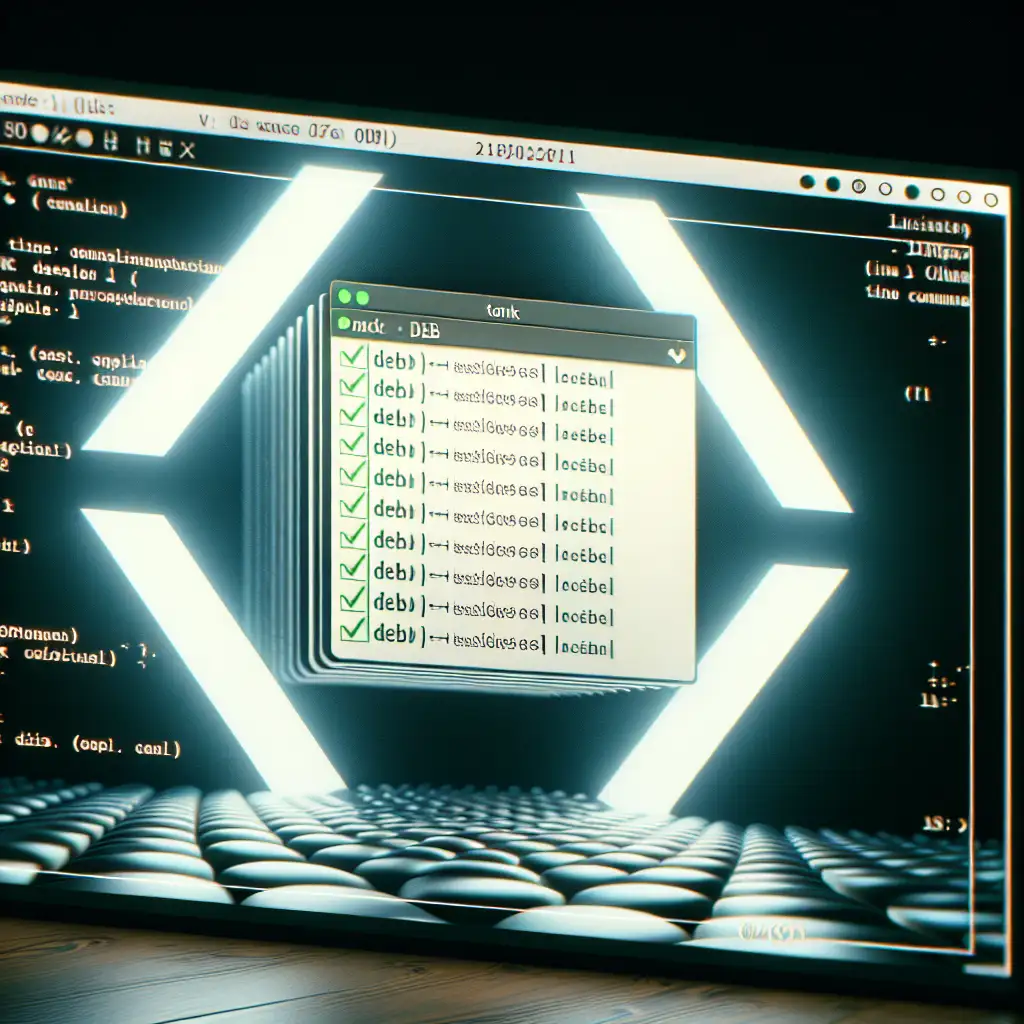How to Run a DEB File Without Breaking Your Linux System
Debian-based distributions such as Ubuntu (22.04 LTS+), Linux Mint, or Pop!_OS rely on .deb files as the standard package format. When software isn’t available via apt, many users turn directly to vendor-provided .deb archives. Installing these, however, is rarely as simple as double-clicking. Package mismanagement, missing dependencies, or conflicting versions may easily break a production workstation.
Download from Trusted Sources Only
Always avoid indirect mirrors or dubious “aggregator” sites—those often bundle outdated or even malicious .deb files. For example, to obtain the official Google Chrome package (for amd64):
wget https://dl.google.com/linux/direct/google-chrome-stable_current_amd64.deb
# Alternatively, download from the official Chrome site via your browser.
Inspect Package Metadata—Don’t Blindly Install
A common failure scenario: installing a package with unresolved dependencies. Manually inspect the control file:
dpkg-deb -I google-chrome-stable_current_amd64.deb
Look at the Depends: field. Example output:
Package: google-chrome-stable
Version: 125.0.6422.78-1
Architecture: amd64
Depends: fonts-liberation, libasound2 (>= 1.0.16), libc6 (>= 2.17), ...
Note: If dependencies are not met, the package will not function or will leave your system in a partially configured state.
Install Carefully; Handle Dependencies
Using dpkg directly (sudo dpkg -i file.deb) does not resolve dependencies. If you encounter errors such as:
dpkg: error processing package google-chrome-stable (--install):
dependency problems - leaving unconfigured
The correct remediation is:
sudo apt-get install -f
This command attempts to fix broken dependencies using the package manager's resolver.
Combined install step:
sudo dpkg -i google-chrome-stable_current_amd64.deb && sudo apt-get install -f
Downside: this approach is transactional only at a shell level—not atomic in the package database.
Use APT Directly for Improved Safety (Recommended, APT >= 1.1)
For distributions with APT 1.1+ (apt --version), installing local DEB files directly with dependency resolution is supported:
sudo apt install ./google-chrome-stable_current_amd64.deb
Note the required ./ to indicate a local path, not a repository package.
This approach invokes dpkg and triggers dependency resolution as a unified process—cleaner and safer than the two-step method above.
Confirm Installation and Remove Residuals
Verify installation state and package version:
dpkg -l | grep google-chrome-stable
# or for more detail:
apt show google-chrome-stable
Uninstall cleanly and remove unused dependencies:
sudo apt remove google-chrome-stable
sudo apt autoremove
Remove the DEB file to avoid clutter:
rm google-chrome-stable_current_amd64.deb
GDebi: Lightweight GUI/CLI Installer for DEBs
For ad-hoc installation, gdebi (CLI or GUI) automatically checks and installs dependencies:
sudo apt install gdebi-core
sudo gdebi google-chrome-stable_current_amd64.deb
Better dependency resolution than bare dpkg, does not require invoking apt-get -f separately.
Known issue: some niche packages declare dependencies not available in standard repositories, which still requires manual intervention.
Detecting Package Conflicts and Avoiding System Disruption
Prior to installation, review repository policy and possible conflicts:
apt-cache policy google-chrome-stable
If a package with the same name is tracked by APT, your local install may be overridden on upgrade unless you pin the version.
Never use --force-all or similar dpkg flags except in disaster recovery; forced installs will typically leave the system in a broken state.
Summary Table
| Installation Method | Dependency Handling | Recommended Use | Limitations |
|---|---|---|---|
dpkg -i file.deb && apt-get install -f | Yes (2-step) | Legacy systems, scripts | Not atomic; error prone if interrupted |
apt install ./file.deb | Yes (1-step) | Modern APT (>=1.1), safest choice | Requires newer APT packages |
gdebi file.deb | Yes | GUI/CLI ad-hoc, lightweight | Separate install, not always available |
Non-Obvious Tips
- Some
.debpackages are built with hardcoded dependency versions; if your distro lags behind, installation will fail without adequate backports or enabling extra repositories. - Post-install scripts included in
.debarchives sometimes modify system configs. Always verify/etc/apt/sources.list.d/and/etc/default/for changes after installing vendor-provided packages.
Diagram: DEB File Handling Path (Simplified)
[.deb File]
│
├─> [dpkg -i] ──> [dependencies?]───┬─> [apt-get install -f]
│ │
└─> [apt install ./file.deb]────────┘
Install .deb files with care—prefer modern APT workflows whenever possible, and always inspect both the dependencies and possible side effects. If uncertain, test in a VM before deploying to critical systems.
